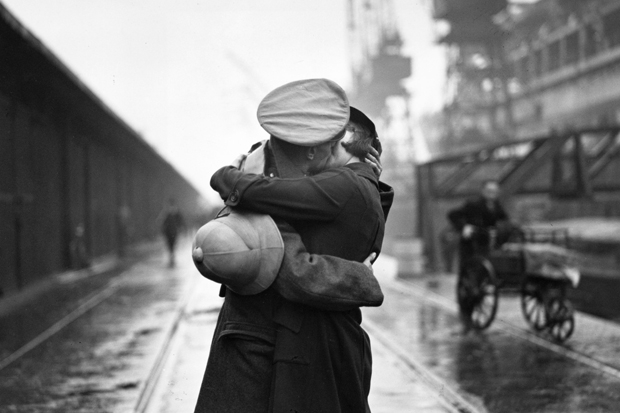Elements of Raffaella Barker’s new novel, her eighth for adults, suggest commercial fiction: a narrative that oscillates between the aftermath of the second world war and the present day, and two failsafe locations, Cornwall and the Norfolk coast. But From a Distance is not commercial fiction. Barker’s narrative is sparingly studded with quotations, but this is not literary fiction either. There is a strong love interest, which does not blossom into romantic fiction. Barker’s novel is a hybrid, enjoyable, ultimately heart-warming. It lacks the freshness and charm of the earlier Hens Dancing, but recalls some of its vividness and forensically detailed scrutiny of family life.
In 1946, Michael, a demobilised soldier, avoids returning to his prewar life. Barker suggests psychological war damage of a standard variety. Michael eschews his parents’ farm in Norfolk and a mistily remembered fiancée Janey for the novelty of the Cornish coast, a community of fishermen, flower farmers and artists. ‘The real question, as he saw it, was whether he… could ever belong to anything or anyone again.’ The answer to that question, of course, is yes. In Cornwall, Michael falls in love. Predictably he fails to reconcile old and new loyalties. He returns to Norfolk, abandoning his Cornish lover.
More than half a century later Luisa is wrestling with the onset of empty-nest syndrome in a house in the country in Norfolk, where her existence is overwhelmingly that of a cog in the machinery of her children’s lives. As for generations of non-working mothers, family life for Luisa has become an exercise in protracted self-denial. Luisa loves her children, ice-cream-making and her teacher husband Tom. But her life lacks passion or any affirmation of the person she probably once thought she was. She is treading water.
The arrival of glamorous stranger Kit threatens to unsettle Luisa’s unremarkable existence. Unexpectedly, Kit has inherited a lighthouse on the coast. It is an unwanted legacy for a preoccupied businessman who has resisted human entanglements; his life, like Luisa’s, will also be unsettled: ‘His life, though he was reluctant to admit it, was small. He had his work, he had his house and he had his friends, but he didn’t have any surprises back in Cornwall.’ Kit’s surprises — and the reader’s too — await him in Norfolk. Barker’s novel suggests that a ‘small’ life is not enough.
There are flaws in From a Distance: the heavy dollop of predictability in Michael’s story; Barker’s sketchy portrait of Tom, which results in Tom and Kit merging in the reader’s mind; writing of occasionally variable quality. It may not matter. Barker’s story gathers pace as it progresses, her depiction of Luisa’s emotional confusion has a vivid immediacy and her world is sufficiently distinctively drawn to absorb and allure. Barker aficionados may not regard this as her best novel but they will recognise — and relish — its distinctive terrain.






Comments